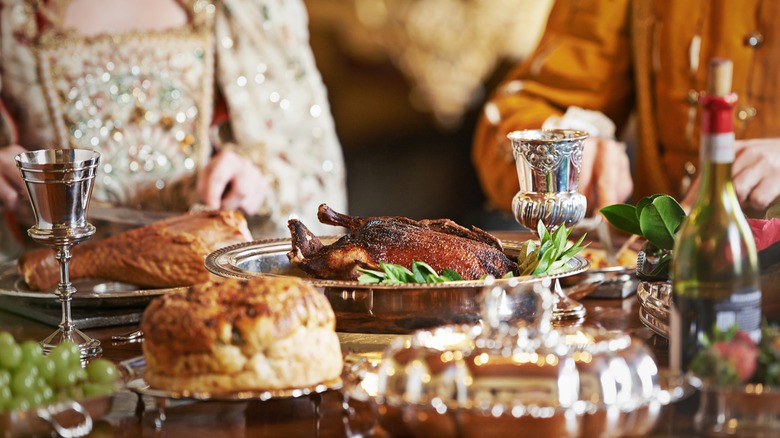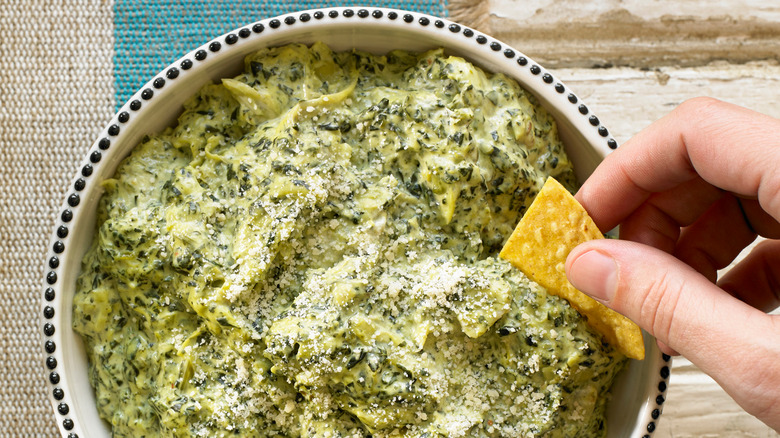Double-Dipping Was Frowned Upon As Far Back As The Renaissance
Regardless of how many centuries may have gone by, at the end of the day, we really haven't changed that much as a society — at least, not when it comes to our collective stance of double-dipping. While the thought may cross your mind when left with naked crudité and the temptation of a warm spinach and artichoke dip nearby, many would agree that it's best that you resist the urge. Re-dipping is exactly what your long-lost relatives would have wanted you not to do.
Although you might be of the mindset that you should be able to "dip the way you want to dip" à la George Costanza, there are a few reasons why the topic remains such a taboo (via YouTube). More than anything, double-dipping can expose you to potentially-harmful germs. However, Scientific American reports that studies have proved that the number of bacteria can vary based on a dip's thickness and acidity just as much as the "danger level" depends on whether the double-dipper has an illness that can be transferred through contact with saliva.
Health risks aside, most cultures tend to consider double-dipping as a poor display of etiquette when dining in a group setting. As for when we collectively decided that the practice of re-dipping was bad, you might be surprised to learn that the sentiment has been shared since the Renaissance period.
Double-dipping has always been an etiquette no-no
Following the Middle Ages, the Renaissance signaled a change in culture and customs with a focus on a revival of art in all forms, etiquette included. Meant to combat bad behavior and replace it with more acceptable (primarily polite) ways of acting, Smithsonian Magazine shares that the introduction of manners was also a way to differentiate the social classes. Therefore, nobility that lacked manners was regarded as no better than the poor.
Of the many aspects of how to comport oneself with decency and elegance, dining remained an especially hot topic found in etiquette handbooks. While the Italian poet Giovanni della Casa, author of "Galateo," recommended against smelling another person's plate or sharing the same glass in fear of contamination of any bodily droplets, another scholar offered a more direct piece of advice. In his treatise "On Good Manners," Erasmus of Rotterdam claimed, "It is boorish to re-dip half-eaten bread into the soup."
Seen as a clear demonstration of crude behavior at the dinner table, double-dipping was deemed barbaric. Forgoing the act was instead viewed as a way to respect the personal space and dining pleasure of others. Despite that many years have since passed, the stance on double-dipping hasn't really changed. And let's be honest, is double-dipping even worth it when you can simply flip the chip before plunging it back into the dip?

